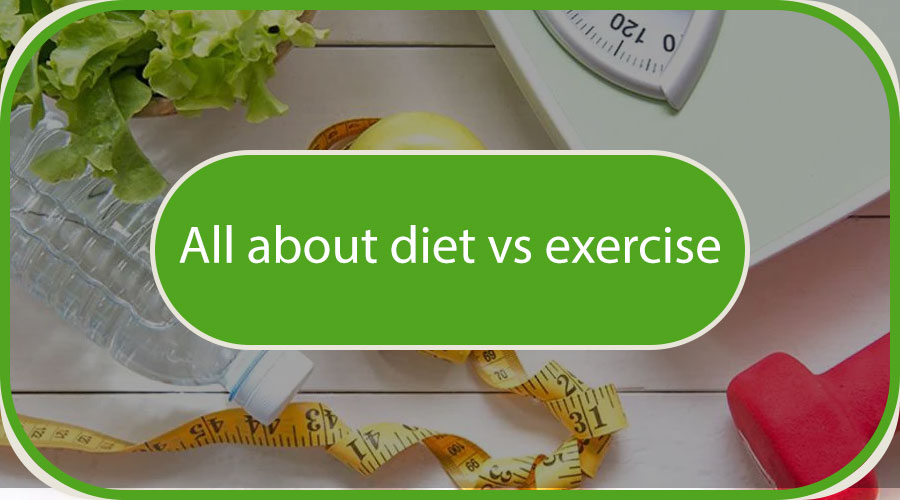
Choosing the right sports nutrition plan is an important part of achieving your athletic goals. It is essential to eat balanced meals and not eat too many calories. Many people mistakenly believe that carbohydrates are the only food group required for athletes. They're actually the most important part of the diet. A healthy balance of carbohydrates, protein, and fats will fuel you and help you reach your goals.
For athletes to be able to digest food and avoid gastrointestinal upsets, they should eat at least three hours before competing or exercising. A healthy diet should include plenty of carbohydrate, protein, and fat. It is important to limit intake of junk food and starchy vegetables. Balanced nutrition is key to ensuring you eat lean meats and fruits, vegetables, whole grains, and other healthy foods. These foods are all great sources of vitamins and minerals, but they're not a good source of calories.

Carbohydrates is the most important food to an athlete before an event. Carbohydrates provide energy and are found in many foods, including milk, breads cereals, grains, vegetables, fruits, and grains. A good way to consume carbohydrates is to have small amounts and avoid high fat or high-protein meals. A high-carbohydrate food should be consumed at least 2 hours before an event to get the best results.
An athlete should eat a balanced diet that is rich in complex carbohydrates, healthy fats, and vegetables. A balanced diet should consist of between 45 and 66% carbohydrates, 25% to 35% fat, 10% to 30% proteins, and 25% to 30% to 30% calories. Drinking plenty of water before, during, and after a sport is also important. You can optimize your performance by eating the right foods at just the right times. This will prevent muscle damage from oxidative and other forms of swelling. Athletes need to eat healthy foods and supplement their recovery.
A balanced diet with carbohydrates and fats is the best for athletes. In the digestive process carbohydrates are converted into glucose, which is the body’s primary energy source. It is converted into glucose, a type or fat that is stored as glycogen in the body. Athletes can boost their glycogen levels by eating carbohydrates and fatty foods prior to and after events. This will help them avoid dehydration.

Athletes should consume sufficient water to replenish their bodies with dietary fiber. Good health requires adequate hydration. The body needs a constant supply of fluids and sodium to sustain its activities. This is the best way for muscle cramps to be avoided and to improve performance. Athletes should always keep their diet balanced with their training schedule. This is difficult for endurance athletes. It can also cause headaches and cramps.
FAQ
How many calories per day should I consume?
The exact amount varies depending on the person. The average is 2000 - 2500 calories per day. The factors that determine how many calories are needed for you include your gender, age, height, activity level, lifestyle, and gender.
Why Metabolic Health Is the Key to Aging Well?
Today's people live longer than ever before. However, as they age, so do their chances of getting sicker. Our current medical science approach is not working, even though we've made many advances.
We need to change how we think about health and aging. We have to start looking at metabolic health - not just weight loss but overall wellness - as the key to healthy aging.
Your metabolism must be strong and healthy to ensure you live an active lifestyle for many years to come.
The good news? There are many things you can do to improve your metabolism. One of those ways is to incorporate these 7 foods into your diet:
-
Resveratrol has been proven to increase cellular longevity. They also contain vitamins C & E, as well as antioxidants.
-
Beans like lentils and pinto beans are excellent fiber and plant-based protein sources. These nutrients help maintain blood sugar levels so they don’t spike and fall.
-
Broccoli is rich in sulforaphane. Studies have shown that it protects cells from DNA damage. It may even slow down cancer growth.
-
Chia Seeds are high in omega-3 fatty acids and fiber. They are rich in protein and antioxidants. All of these nutrients can promote heart health and brain function as well as gut health.
-
Green Tea has polyphenols called catechins. Studies have shown that green tea contains catechins which are linked to lower bone fractures and cardiovascular disease. They also reduce cognitive decline and diabetes risk.
-
Salmonis high in protein and rich in vitamin D is one of the most popular sources of lean proteins.
-
Walnuts are high in omega-3s. They also contain antioxidants like alphalipoic Acid (ALA). ALA protects against inflammation and boosts energy production.
Do Men Need A Gym Membership?
A gym membership does not have to be required for men. A gym membership will make your money more valuable.
Many gyms offer free trials that let you try the facilities before you pay any fees.
You can use our gym anytime you like and it's free. Your membership can be cancelled at any time you choose to love it or not.
Is it true, that too much protein can cause kidney stones?
Protein is important for maintaining healthy bones and tissue. Too much protein can cause calcium to be excreted through the urine. This can lead to kidney stones.
It is important that you note that not all people develop kidney stones when they consume more than 2 grams of protein per kg (2.2 pounds). You don't have to eat a lot of protein to get kidney stones.
By being careful with your sodium intake, you can prevent kidney stones. Sodium helps regulate water balance in the kidneys. Too much sodium results in a higher risk of developing kidney stones.
If you have kidney stones, you can reduce your intake of protein. Protein accounts for about half the daily caloric requirement of most adults. It is possible to lose weight by cutting down on your intake of proteins.
If you do decide to eat more protein, don't go overboard. Do not eat more than 20% of your daily calories from protein.
How often should you exercise per week?
It all depends on how much time and what kind of exercise you like. You should do moderate-intensity aerobic exercise three to five days per week. It is important not to overdo it. To get the best results from your exercise, it is important to be consistent.
Which exercises are best for me?
It all depends upon your fitness goals. Some people prefer endurance sports like swimming, cycling, or running. Others love lifting weights or using resistance bars. There are many types and styles of exercise available today. Select the one that best suits your needs.
What is the best 7-day workout program?
A seven-day exercise plan should include cardiovascular training (running/biking/swimming), strength exercises (using weight machines, free weights) and one flexibility/core program (yoga or Pilates). Each activity should be performed at least once each week. The total time for each session should not exceed 45 minutes.
Cardiovascular Exercise: Running, Biking, Swimming
It is important to complete at least 60 minutes of cardio per week. Try to do 75 minutes per semaine for the best results. Cardio exercises can be used to increase blood flow, stimulate muscle growth, and improve blood circulation.
Strength Training
Cardio exercises focus on the heart and lungs while strength training targets muscles and bones. Strength training builds lean muscle mass, which helps burn calories even when resting.
Flexibility and core workouts
Flexibility and core workouts are great ways to strengthen your entire body. Both yoga and Pilates are excellent options.
What is the purpose of milk for men?
Next time you buy milk think about what you could do with it. You may also benefit from consuming less coffee.
The benefits of milk have been demonstrated to be both beneficial to children and adults. Milk contains nutrients like vitamin D. Calcium, potassium, phosphorous, magnesium, and other essential nutrients.
It aids in digestion, strengthens bones, and promotes weight loss. Adults who consume dairy products tend to have fewer illnesses and better immune systems.
Also, milk is rich in lactose so people who can't digest this sugar well can still reap the benefits of it without any stomach issues.
You can drink more milk than you would soda or juice. The extra calcium and vitamin D found in milk can help strengthen your teeth and bones.
Plain low-fat milk can be used to make yogurt if you don’t like the taste. Yogurt, which is lower in calories but higher in protein, is a great option to milk.
Yogurt also contains probiotics, which aid in digestion and improve immunity.
A glass of warm milk is a great way to get a good night's sleep if you're having trouble getting to sleep. Warm milk relaxes the muscles and increases serotonin levels. It will give you a restful night.
Statistics
- The PRS enabled risk stratification for overall prostate cancer and lethal disease with a four-fold difference between men in the highest and lowest quartiles (HR, 4.32; 95% confidence interval [CI], 3.16-5.89). (pubmed.ncbi.nlm.nih.gov)
- Get free shipping and 25% off today. (healthline.com)
- Are You One of the 20% of Guys (mh.co.za)
- An estimated calorie range for moderately active adult males falls between 2,200 to 2,800 calories per day, depending on age. (eatright.org)
- Candidates and applicants must pass all four tests at 70% (minimum level) to graduate from Basic Deputy U.S. Marshal (BDUSM) Training. (usmarshals.gov)
External Links
How To
What should I eat before a workout?
You need to eat less calories than you burn while exercising in order to lose weight. You must also eat all of your nutrients.
This includes protein, carbohydrates, fats, and vitamins.
It is better to eat smaller meals throughout the day than three large ones.
It is possible to not do as well if your body is too full when you work out.
Instead of drinking energy drinks that are high in sugar and caffeine, you could drink water. This keeps you hydrated and energized.
But make sure you're getting enough fluids. You could lose electrolytes if you drink too much water.
For proper functioning, the body requires electrolytes.
You can drink sports drinks if you don’t have access water. They are rich in sodium, potassium, calcium and magnesium as well as other minerals.
This will replenish your electrolytes. But they won't replace what your body has lost due to sweating.
You can take multivitamin pills if you are concerned about salt loss during exercise.
These have extra vitamin B6 that helps regulate sodium levels in your body.
However, you shouldn't rely on supplements if you don't know how much salt you're getting from food and beverages.
They are not subject to regulation by the Food and Drug Administration.
One example is that some sports drinks contain more sodium.
Some sports drinks may even contain artificial sweeteners or preservatives. These may cause digestive problems.
If you are worried about too much salt, you could try sea salt.
It contains fewer chemicals that table salt.
Sea salt also has low levels of iodine which is another mineral that is essential for healthy thyroid function.